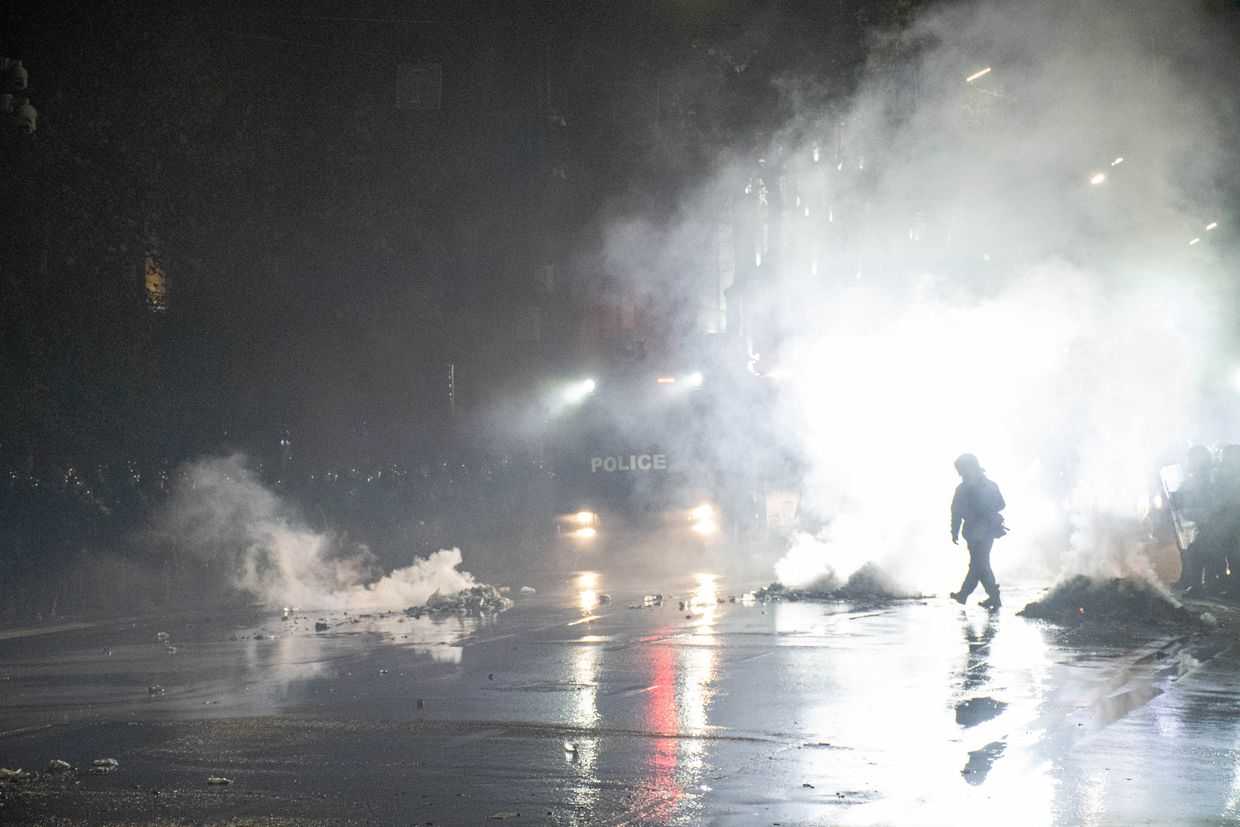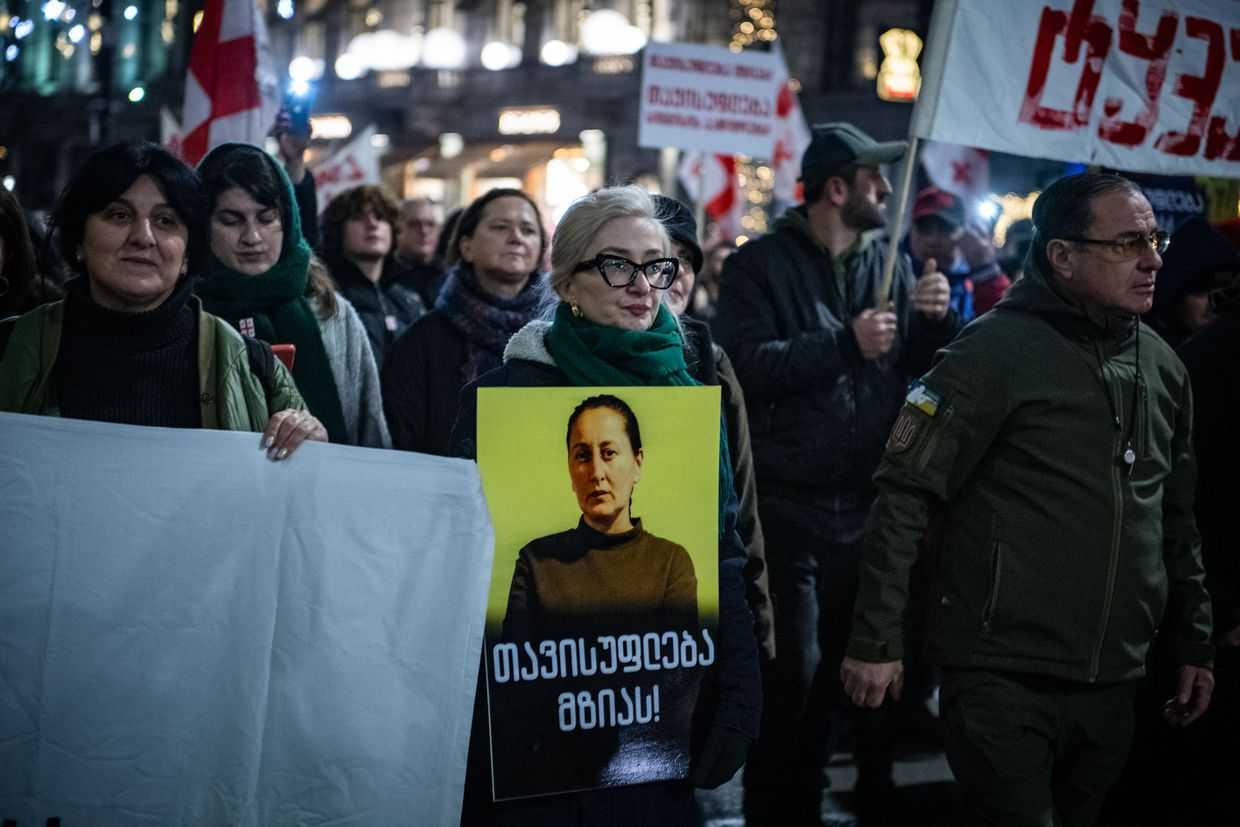
The chair of Georgian Dream’s parliamentary faction, Mamuka Mdinaradze, announced that the party would support the foreign agent bill, as over 280 civil society and media organisations warned that the law would cause ‘immeasurable harm’.
‘On behalf of Georgian Dream, I can say that we have agreed on the principles and will support the bill’, said Mamuka Mdinaradze, speaking at a briefing following a meeting of the parliamentary majority. ‘Of course, the details will continue to be debated.’
The chair of the party’s parliamentary faction also claimed that anyone who compared the law to Russian legislation was ‘simply lying’, adding that the law was not comparable to American legislation either.
‘It is impossible to give a reason for why [the bill’s] principles can be rejected’, stated Mdinaradze.
If adopted, the law would require non-governmental organisations and media outlets that receive more than 20% of their revenue from abroad to register as ‘agents of foreign influence’ and submit a ‘declaration’ or face fines of up to ₾25,000 ($9,400).
While many have noted the similarities of the bill and the rhetoric surrounding it to that of Russia’s foreign agent law, the law’s authors claimed that it was modelled on Western legislation including America’s Foreign Agents Registration Act (FARA); an assertion that the US State Department has denied.
Since the bill’s introduction, many internationally and within Georgia have expressed alarm, warning that the law could be used to punish government critics and limit freedom of speech.
[Read more: Georgian president and journalists speak out against ‘Putin’s law’]
Following its registration in parliament, a joint statement signed by over 280 civil society and media organisations in Georgia was published on Tuesday, announcing their categorical opposition to the draft law.
‘We believe that the attempt to adopt this Russian law is directed not only against free civil society organisations and critical media, but also against the population of Georgia’, the statement reads. ‘Adopting this bill will attack the main Georgian values — dignity, independence and civil solidarity’.
The statement also highlights that adopting the draft law would ‘seriously damage’ Georgia’s integration with Europe and progress towards EU membership.
‘It will be impossible to implement this law without causing immeasurable harm to hundreds of thousands of Georgian citizens’, the statement concludes.
On Monday, Georgia’s President Salome Zurabishvili released a statement condemning the law and announcing that she would not support the legislation, warning that the law took Georgia away from its ‘European future’, and instead ‘closer to the vicious model of Russia’.
The media watchdog group Reporters Without Borders (RSF) told OC Media that ‘this draft law is worrying for press freedom in Georgia because it aims directly at the media and NGOs.’
‘Why would it not be a requirement for all companies? It looks like a will to specifically discredit the media and NGOs, especially as it was proposed by a clear anti-Western “People Power” and especially in a context where independent media are targeted by smear campaigns’, they stated. ‘This bill does not seem to address the threat of the disinformation spread by Russia’.
‘Foreign spies and traitors’
Commenting on Russia’s foreign agent law in 2014, the Council of Europe’s Venice Commission described the term ‘foreign agent’ as ‘unfortunate’, stating it echoed rhetoric used during the Soviet Union, stigmatised civil society, damaged reputations, and hindered the activities of organisations labelled as such.
It noted that the term had associations with foreign spies and traitors, and could be used against those labelled foreign agents.
While the authors of the draft law and members of the ruling party have insisted that the initiative is only intended to strengthen financial transparency, Georgia’s draft law has been found to be similar to the first version of Russia’s foreign agent law, adopted in 2012.
[Read on OC Media: Foreign agent law to be submitted to Georgian Parliament]
The draft law was introduced on 14 February by People’s Power, a group of pro-government MPs who formally left the ruling Georgian Dream party last year — with the party’s support — to ‘speak openly’ about a supposed Western conspiracy to drag Georgia into war with Russia.









